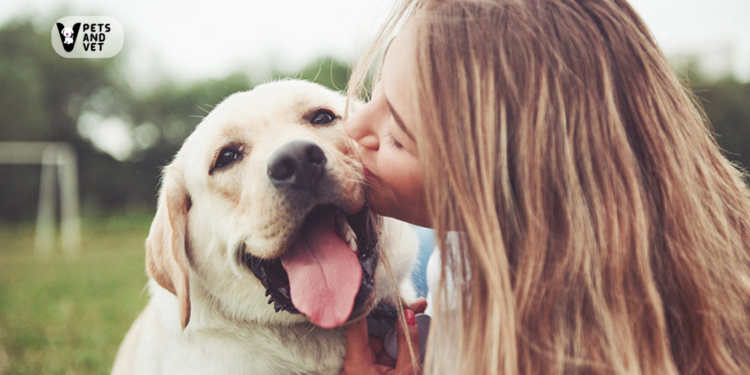In today’s fast-paced world, maintaining good mental health is a priority for many. Coping with stress, anxiety, and the demands of daily life can be challenging. While various strategies exist to support mental health, one often-overlooked and underrated approach is the presence of a furry companion. In this article, we’ll delve into the profound benefits of owning a pet for your mental health and explore the positive effects of the pet-human bond.
Mental Health and the Need for Companionship
Mental health is a critical aspect of our overall well-being. It influences how we think, feel, and act, and it plays a significant role in our capacity to handle life’s ups and downs. The concept of Pet for Your Mental Health centers around the idea that pets, such as cats and dogs, can serve as essential companions in our lives, helping us maintain emotional stability and well-being.
Reducing Stress and Anxiety

One of the primary ways owning a pet can benefit your mental health is by reducing stress and anxiety. The mere presence of a pet, whether they are cuddling on your lap or playing beside you, can trigger a release of oxytocin, a hormone associated with bonding and stress reduction. This simple act of petting your cat or taking your dog for a walk can have an immediate calming effect, helping you cope with the daily pressures that life throws at you.
Imagine coming home after a hectic day at work, feeling mentally drained and overwhelmed. You open your front door to be greeted by your furry friend, wagging their tail with sheer excitement. You sit down, and they snuggle up to you, purring or barking with joy. In that instant, the world’s worries seem to fade away, and your stress levels start to plummet.
This emotional connection with your pet is not just a subjective feeling. It’s a scientific fact. Numerous studies have shown that interactions with pets lead to a reduction in cortisol, the stress hormone, and an increase in oxytocin, which is often referred to as the love hormone. This hormonal shift can provide immediate relief from the daily stressors that can accumulate and take a toll on your mental health.
Combatting Loneliness
For individuals struggling with feelings of loneliness, the companionship of a pet can be a lifeline. Loneliness often leads to adverse mental health outcomes, including depression. Having a pet for your mental health can alleviate this loneliness, as pets provide unconditional love and a sense of purpose. The routine of feeding, grooming, and interacting with your pet can help you feel connected and valued.
Pets don’t just fill your home; they fill your heart. Their presence offers a constant source of companionship that can be especially comforting during moments of solitude. They don’t judge or criticize you. They simply provide love, affection, and a listening ear (or a wagging tail).
This companionship can be a significant source of emotional support. Whether you live alone, are going through a challenging time, or simply need someone to share your thoughts with, your pet is always there, ready to lend an understanding ear and offer comfort. Their presence alone can help reduce the sense of isolation that often accompanies feelings of loneliness.
Enhancing Emotional Stability
Owning a pet for your mental health can also enhance emotional stability. When you come home to a wagging tail or a purring cat, you’re greeted with love and warmth. This emotional support can help lift your mood and reduce feelings of sadness or frustration. The responsibility of pet ownership can provide structure and routine to your life, contributing to a sense of stability and purpose.
Pets have an uncanny ability to sense when something is amiss. If you’re feeling down or anxious, your pet often tries to comfort you in their unique way, whether it’s through cuddling, playing, or simply being by your side. This emotional connection can have a profound impact on your mental well-being.
The routine and predictability that come with pet ownership can also be beneficial. Knowing that your pet relies on you for their care gives you a reason to get out of bed each day, even when you might not feel like it. This can help break the cycle of negative thinking and provide a sense of purpose and responsibility that is beneficial for your emotional stability.
Promoting Physical Activity
Another aspect of owning a pet for your mental health is the promotion of physical activity. Dogs, in particular, require regular exercise in the form of walks and playtime. This not only benefits the pet but also encourages their owners to stay active. Regular physical activity has been shown to have a positive impact on mental health, reducing the risk of conditions like depression and anxiety.
Daily walks with your dog become an opportunity for both you and your pet to get some fresh air, enjoy the outdoors, and engage in light exercise. These moments of activity help release endorphins, which are natural mood elevators. It’s a win-win situation: your pet stays healthy, and you reap the mental health benefits of increased physical activity.
In addition to dogs, other pets also require some level of physical activity, whether it’s playing with a cat or setting up an exercise routine for a rabbit. These activities, while not as intensive as dog walks, still contribute to your overall well-being by keeping you engaged and physically active.
Building Social Connections
Pets can also serve as social facilitators. Walking your dog in the neighborhood or taking your pet to a local park can lead to interactions with other pet owners. These interactions can lead to new friendships and a sense of community, which is essential for mental well-being. Building social connections can provide a support network during challenging times.
Interacting with other pet owners can create a sense of belonging and community. You instantly have something in common to talk about: your love for your pets. Over time, these interactions can lead to deeper friendships, playdates for your pets, and a sense of support when you need it most.
In a world that sometimes feels increasingly disconnected, the bond between pet owners can help bridge gaps and foster meaningful social connections. This sense of community can be a valuable resource for your mental health, especially during times of stress or when you’re seeking emotional support.
Teaching Responsibility

The act of caring for a pet for your mental health can teach responsibility. This sense of duty can be particularly valuable for individuals struggling with depression or low self-esteem. Feeding, grooming, and ensuring the well-being of your pet can instill a sense of accomplishment and boost self-confidence.
Taking care of a living being comes with responsibilities, and these responsibilities can help you regain a sense of control in your life. When you see your pet thriving under your care, it provides a tangible reminder of your ability to nurture and protect. This feeling of competence can be empowering, especially if you’re dealing with low self-esteem.
Fostering Unconditional Love
The love and affection provided by pets are unconditional. They don’t judge or criticize; they simply offer love and acceptance. For individuals dealing with mental health challenges, the presence of a pet can be a constant source of comfort and reassurance. Knowing that your pet is always there to support you can be immensely comforting.
No matter your mood or the events of the day, your pet’s love remains unwavering. They don’t hold grudges or react negatively to your emotional ups and downs. This unconditional love can provide a safe space for you to express your emotions without fear of judgment or rejection.
If you’ve had a tough day or are feeling down, your pet will still approach you with affection, as if they instinctively know that you need their comforting presence. Their companionship is a soothing balm for your soul, a reminder that you are valued and loved just as you are.
Coping with Loss and Grief
At times, life presents us with difficult moments, including the loss of loved ones. Owning a pet for your mental health can help you cope with grief. The bond between you and your pet can be incredibly strong, and the support they offer can be a source of solace during challenging times. Many people find that the companionship of a pet eases the process of grieving.
Losing a pet, while undoubtedly painful, can also serve as an opportunity to learn how to cope with grief and loss. Your pet’s passing may be one of the most challenging experiences you’ll face, but it can also be a time for reflection and healing. In this process, you may discover inner strength and resilience that you didn’t know you possessed.
In conclusion, owning a pet for your mental health is a simple yet powerful strategy for enhancing well-being and emotional stability. The presence of a pet can reduce stress, combat loneliness, enhance emotional stability, promote physical activity, build social connections, teach responsibility, foster unconditional love, and help cope with loss and grief. The Pet for Your Mental Health concept is a testament to the profound impact our furry friends can have on our lives. So, if you’re seeking a natural and heartwarming way to improve your mental health, consider welcoming a pet into your home. The positive impact they can have on your mental health is immeasurable, offering a daily source of joy, love, and emotional support.





